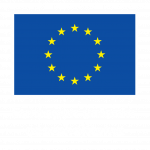

Finland Tops OECD Assessment for Coordinated AI Development Strategy
A new OECD report highlights how one small Nordic nation has quietly positioned itself as Europe’s testing ground for artificial intelligence — and the results could reshape how democracies harness this transformative technology.
Text by Martti Asikainen, 13.11.2025 | Photo Adobe Stock Photos

On a freezing winter morning in Kajaani, a data centre houses the LUMI supercomputer — one of the most powerful machines in the world — crunching through billions of calculations per second. Last year, researchers here achieved what many thought impossible: they created the largest Finnish language model ever developed, proving that a nation of just 5.6 million people could compete in the global AI race.
It’s a potent symbol of Finland’s broader ambitions. According to a comprehensive assessment by the Organisation for Economic Co-operation and Development (OECD), released this week, this Nordic nation has emerged as a European leader in artificial intelligence implementation through a strategy that combines substantial investment with pragmatic, cross-sector coordination.
The OECD report, which surveyed EU member states’ progress in implementing the EU Coordinated Plan on Artificial Intelligence, singles out Finland for its “comprehensive set of measures to help develop a robust AI ecosystem” and its success in “leveraging the potential of data and high-performance computing.”
From Industrial Past to Digital Future
Finland’s transformation reflects a nation reinventing itself. The Finnish Centre for Artificial Intelligence (FCAI), launched in 2019, has brought together expertise from Aalto University, the University of Helsinki, and VTT Technical Research Centre with €250 million in funding through 2026.
The OECD notes that this infrastructure is proving crucial, with practical applications emerging that demonstrate the value of coordinated investment in AI research. It also highlights Finland’s “strong focus on applied AI research and AI testing and experimentation” as particularly noteworthy.
In Tampere, Finland’s third-largest city, the Tampere City Lab operates as part of an EU-wide network of testing facilities where companies can trial AI innovations in real-world urban environments before market launch. The facility provides both virtual and physical testbeds for smart city and AI-powered solutions, supporting the development and testing of AI technologies in real-world urban settings.
The Finnish AI Region European Digital Innovation Hub, which launched in 2022, offers experimentation and testing platforms with testbed facilities in Espoo, Helsinki and Vantaa, within 5G/NextG cellular network technologies. Finland’s national co-funding for its European Digital Innovation Hubs amounts to €3.7 million for 2023-26, covering up to 30% of costs.
This practical approach extends to healthcare, where Finland is leveraging its public health system as an AI development platform. The FinnGen project, launched in 2017, has collected genetic data from over 500,000 Finnish participants — roughly 10% of the entire population — creating one of the world’s most comprehensive genomic databases. The project focuses on public-private sector partnerships to collect and analyse genetic data to better understand the genetic basis for disease and future disease prevention.
And the Quantum Leap
The OECD identifies “leveraging the potential of data and high-performance computing” as a particular priority for Finland, and the country is backing this with substantial investment.
The government has allocated €70 million to develop a quantum computer reaching 300 quantum bits by 2027, which will be integrated with the LUMI supercomputer as part of a national quantum computing environment. It’s a substantial bet for a small nation, positioning the country at the forefront of quantum computing development.
The commitment extends further: Finland has pledged up to €250 million towards hosting future top-level European supercomputers, positioning Kajaani’s data centre as a continental hub. Finland’s share of the LUMI budget was approximately €48 million.
Finland has also adopted what the OECD describes as a “cloud first” strategy that encourages the use of cloud solutions by default, helping improve productivity and service delivery across the public sector. The Ministry of Finance updated the central government’s cloud guidelines in 2023, emphasising this approach and addressing the handling of public and confidential data in cloud environments.
Supporting Business Innovation
Business Finland’s generative AI campaign, which concluded in January 2025, supported proof-of-concept projects for small and medium-sized enterprises, a part of what the OECD identifies as Finland’s commitment to supporting SMEs and the export sector. The campaign funded research-based projects related to the utilisation of generative AI for Finnish SMEs and midcap companies with group-level turnover of less than €300 million, focusing primarily on technology companies and the ICT industry.
The EU-funded Sustainable Growth Programme has financed a €20 million call for projects focused on testing, experimentation and research to support SMEs and Finland’s export sector. At the same time, Business Finland’s broader Digital Native Finland mission includes AI-relevant programmes such as the 6G Bridge Programme, with a planned innovation funding budget of €130 million for 2023-26, and the Data Economy Programme, with up to €135 million allocated for 2023-27.
Optimistic projections cited in the OECD report suggest that widespread adoption of generative AI could increase Finland’s GDP by €20-25 billion over ten years, representing an additional 8% growth. This increase is expected to come from productivity gains, freed-up time from automation, and the re-employment of time for other value-creating activities.
Education for the AI Age
The OECD report also praises Finland’s “several initiatives in place to provide the Finnish economy AI-relevant capacity and skills,” noting that these aim to understand challenges whilst providing guidance and incentives for investment in skills development.
The government has allocated €255 million to universities for piloting new practices in doctoral education between 2024 and 2027. This funding will support 1,000 doctoral researchers who will receive three-year employment contracts to complete their doctoral degrees. The Finnish Doctoral Program Network in Artificial Intelligence is among the funding recipients.
Finland’s approach goes beyond elite research. The Service Centre for Continuous Learning and Employment provides training in AI applications specifically for personnel at small and medium-sized enterprises—the backbone of Finland’s economy. The centre conducts foresight analysis and procures training related to the use of AI applications for SME personnel, and helps develop solutions for strengthening AI skills in academic curricula.
According to the OECD document, since higher education institutions are free to define their academic offering, government action regarding the integration of AI in university studies focuses on providing funding and incentives. Finnish government officials report evidence that most higher education institutions either have already integrated AI in most fields of education or are in the process of doing so.
At the time of writing, the National Agency for Education and the Ministry of Education and Culture were developing recommendations related to AI in education, teaching and training, aiming to improve understanding of AI, promote its responsible and safe use, and help provide all learners with equal opportunities.
Sustainability and Healthcare
Finland’s Climate and Environmental Strategy for the ICT Sector, launched in 2021, outlines measures to reduce the carbon and environmental footprint of the ICT sector, including AI technologies. It includes guidelines for improving energy efficiency and promoting the use of renewable energy sources in ICT infrastructure.
The Green ICT Ecosystem, part of the Visiiri project, brings together professionals from academia, public administration, companies and associations to enhance the ecological, economic and social sustainability of the ICT industry. The project focuses on assessing the environmental impact of the Finnish ICT sector and supporting the green transition through stakeholder collaboration, impact measurement and training materials. It is co-financed by the European Regional Development Fund.
The Finnish Social and Health Data Permit Authority Findata, established to oversee the processing of data permit applications, forms a central piece of Finland’s digital health infrastructure. Kanta Services, established in 2010, oversees key services such as data repositories, e-prescription services and the patient portal OmaKanta, and is involved in setting interoperability standards to enable integration between different health information systems.
In 2024, the Ministry of Social Affairs and Health established the AI Ecosystem in Social and Health Services to enable innovation and collaboration between the social and health services sectors. Finland is also part of the 1+ Million Genomes project, and the Finnish Innovation Fund Sitra serves as a co-ordinating member of the Second Joint Action Towards the European Health Data Space, which focuses on the harmonised secondary use of health data across the European Union.
HealthHub Finland, launched in 2022, promotes AI applications in the health sector and acts as a partner organisation to enable the use of Finnish health data for digital innovation.
Public Sector, Advanced Mobility and Bioeconomy
The Prime Minister’s Office has developed common guidelines for the responsible use of generative AI by the government, establishing a government-wide network within which experiences and best practices regarding AI use are shared. This work builds on initiatives such as the AuroraAI programme, which ran from 2020 to 2022 and used AI to streamline public services and improve their accessibility.
The Ministry of Transport and Communications has experimented with the use of generative AI based on Finnish language models to support legislative preparation, demonstrating the government’s willingness to explore AI applications in core administrative functions.
In 2024, the ministry prepared a memorandum assessing legislative amendments required for road transport automation in Finland, with officials continuing legislative drafting based on feedback from the consultation round and aiming to submit a government proposal to parliament during the 2025 autumn session.
Future Mobility Finland, an initiative and communication platform launched in 2021, fosters sustainable and innovative mobility solutions and promotes the development and use of AI technologies across various modes of transport as part of the National Programme for Sustainable Growth in the Transport Sector that ran between 2021 and 2023.
Building on the Finnish open forest data system launched in March 2018, new solutions are being developed for forest data collection and management, with €900,000 allocated for 2024-26. Many of these solutions involve the use of AI, with recent projects using accurate forest maps and autonomous drones to help improve harvesting quality, studies on gamified mobile applications for forest data collection, and work on creating digital twins of forests.
The Finnish Bioeconomy Strategy 2022-2035 promotes the use of AI and other technologies to enhance the efficiency and sustainability of bio-based industries, supporting the development of new bio-based products and services and contributing to Finland’s goal of becoming climate neutral by 2035.
A Coordinated National Approach
What distinguishes Finland’s approach, according to the OECD, is the integration of AI within a broader strategic framework. The country’s Digital Compass, a national roadmap extending to 2030, builds on previous AI-focused strategies including “Finland’s Age of Artificial Intelligence” and “Artificial Intelligence 4.0.” The Finnish government plans to integrate AI in subsequent updates to the Digital Compass.
The OECD notes that Finland has established a robust governance structure through its Digital Office, which coordinates digital policies across key ministries including Economic Affairs and Employment, Transport and Communications, Finance, and Education and Culture.
A twofold project running from 2025-26 was put in place to strengthen co-ordination of AI policy initiatives and the data economy. A multi-stakeholder Digital Panel was established in mid-2024 to identify opportunities and challenges regarding technological development.
The report highlights Finland’s “development of initiatives to promote AI uptake in all priority sectors,” noting that these measures are integrated into broader strategies on climate, mobility, and bioeconomy.
The Road Ahead
Finland’s comprehensive approach reflects understanding that technological leadership requires more than isolated initiatives. By integrating AI considerations across policy domains—from education and healthcare to environmental sustainability and transport—the country has created what the OECD describes as a robust ecosystem where innovation can flourish.
The OECD’s assessment suggests that in choosing to compete not on scale but on strategy—not on corporate might but on coordinated national purpose—this small Nordic nation has offered an alternative model for how democracies might harness artificial intelligence.
For other European nations watching as AI reshapes the global economy, the OECD report on Finland’s approach provides evidence that smaller players can still shape the game through strategic investment, cross-sector coordination, and a clear vision for integrating AI across society whilst maintaining focus on sustainability, education, and public benefit.


Finnish AI Region
2022-2025.
Media contacts